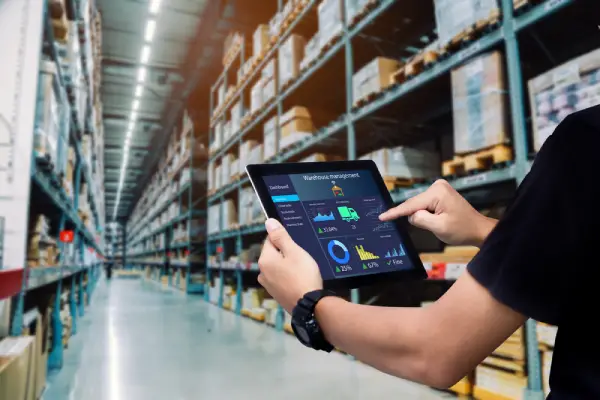There are several key facts, elements, and items to know about fulfillment centers for eCommerce inventory. These centers are essential for managing inventory and overseeing supply chains, which is critical. An eCommerce fulfillment and distribution center can be exactly what business owners need to take the next big step forward. As a business owner yourself, you should consider investing in fulfillment operations to revolutionize your company. Here, we will look at everything to know about fulfillment centers for eCommerce inventory.
How Fulfillment Centers Work
First and foremost, understand how an eCommerce fulfillment center works. Find a fulfillment center that is close to your customers and in line with your budget. At this location, you then situate the inventory and integrate these products with your online storefront. That way, the provider receives the correct information from the seller when an order is placed. Small business automation is best for these operations, as manually fulfilling each order becomes arduous each time. Of course, most fulfillment centers do not offer specific services like escalation for incorrect order shipments and payment processing. Certainly, you need to clearly understand how fulfillment centers work for eCommerce inventory.
Types Of Fulfillment Centers
Secondly, it is important to know that fulfillment centers come in different forms. While they may appear similar in name, you need to know what each one does, as there are subtle differences. Warehouse fulfillment centers are specifically run out of a warehouse instead of a brick-and-mortar storefront. This means that your inventory would be kept at that facility for long-term storage. This usually means they would not have services like picking, labeling, packaging, and distributing, that a fulfillment center would offer. Warehouses are most useful if there is an excess of inventory or seasonal goods. 3PL fulfillment centers offer a third-party fulfillment of orders. In contrast to warehouse fulfillment centers, they conduct more of the logistical functions, like picking, packing, as well as shipping, receiving, and returning products. You will need to know what your business needs are, and what solution works best for your eCommerce inventory. In short, you need to know what type of services you need to maximize your business.
Fulfillment Center Vs Warehouse
Understanding the difference between fulfillment centers and warehouses is crucial to start an eCommerce business. To begin, warehouses are larger facilities that store inventory and can include industrial equipment (forklifts, order pickers) to help locate, store, and move inventory around. These are primarily used for business-to-business (B2B), as they house excess inventory until it is ready to ship to clients. Depending on the size of your business, warehouses can also rent space depending on what your needs are, which is cost-effective for eCommerce for smaller, to medium-sized companies. Fulfillment centers are locations where the seller outsources their logistical needs, such as a 3PL, when orders are placed through your eCommerce store. It is larger in scope, as it manages, stores, and ships directly to the customer, or larger retailers, assisting the sellers in managing orders from an operational standpoint.
Key Functions Of A Fulfillment Center
While a warehouse stores inventory, it is up to you to manage what is stored and organized. This places a large amount of responsibility on you. Fulfillment centers are the solution to that, providing the logistical functions needed to assist in inventory management. It is a comprehensive service that helps with vital processes. Fulfillment centers assist with integrating you and your carriers’ platform, or any other software for eCommerce. They assist with tracking and managing orders. They also assist with physical picking and packaging, shipping, and working with carriers for distribution. Fulfillment centers can also handle customer service functions, like returns, and customer complaints, and escalations. This means that your inventory for eCommerce is handled as efficiently and effectively as possible. Of course, this takes a load off your mind.
When To Partner With A Fulfillment Center
As you can see, partnerships with a fulfillment center are a sensible solution from a financial and logistical standpoint. Optimizing day-to-day business and manufacturing processes helps allow you to scale your business as it grows. Note that fulfillment centers handle the dynamic shift of trends in sales, whether it be based on seasonal inventory or general trends in the marketplace. When your sales volume reaches steady growth, consider fulfillment centers to provide much-needed time for you to focus on other parts of your business. The stronger the partnership is, the better for your business!
To recap, the right effective logistical partner in a fulfillment center can offer peace of mind in managing inventory for eCommerce offering time and cost-efficient shipping of your inventory, and seeing that your business thrives in the growing eCommerce market. When you decide what is the right fit for your business, and optimize the process to fulfilling orders for your customer base, there is no telling where your business can go!
 Business First Family Business, Accounting, Finance, Investing, Marketing And Management
Business First Family Business, Accounting, Finance, Investing, Marketing And Management
